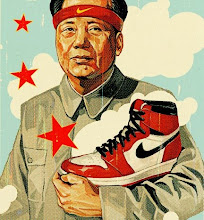 If my memory serves me right, the traffic during the Beijing Olympics were awesome! Even though there was a dedicated lane for Olympic vehicles only on every street traffic was swift. Due to the implementation of the odd/even number system on alternate days, only half the allotted cars in Beijing were allowed on the road. That's the government taking charge at its best.
If my memory serves me right, the traffic during the Beijing Olympics were awesome! Even though there was a dedicated lane for Olympic vehicles only on every street traffic was swift. Due to the implementation of the odd/even number system on alternate days, only half the allotted cars in Beijing were allowed on the road. That's the government taking charge at its best.As the Olympics ended, local citizens discussed the necessity of policies such as the odd/even car plate system and others that helped combat pollution. Everyone agreed that it was preferable to keep the policies in place but not realistic.
Fast forward 27 months later and finally taking some kind of action to curb the congestion problems in Beijing. The government will begin to limit the amount of new vehicles coming onto the streets to only 240,000 next year. Although theres a rule that limits car use one day per week, the number of cars in Beijing has sky rocketed in the past 2 years. Reports claim that
...as of December 19, the capital had 4.76 million vehicles, 700,000 more than that at the beginning of 2010 and contrasting with 2.6 million in 2005.
What are you going to do about the almost 5 million cars already on the roads?? How can the average speed of cars on Beijing roads be only 13mpg? ONLY 13?
Traffic in Beijing is not like normal cities where there is a rush hour in the morning going to work and in the evening getting out of work. The only time where there is not rush hour is between 9pm and 6am. At all other times, there will be consistent bumper to bumper traffic where its impossible to go above 20mpg.
The traffic is so bad that its difficult to schedule any kind of business dinners or dining out with friends unless someone comes incredibly late. Combine this with subway cars absolutely packed during rush hour and theres no real way to get around the city. That's why I always stay around one specific area (East 3rd ring) and rarely venture out anywhere when I'm in Beijing.
Please, Beijing gov't, take charge and get all of these cars off the street. I don't understand how you put this problem off until now, but do something! I understand that China wants to develop the auto industry as a pillar industry in China. I also understand that people buying cars increase GDP, but shouldn't there be a consideration of the social good? What good are cars if they just sit on freeways that resemble more like parking lots??
